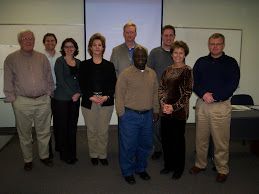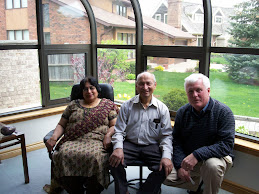Hello, Charles and Susanna! It is a delight to hear from you! Let me deal first with your questions.
1. Harvard University now offers a business skills certificate. It consists of four modules. Access to each costs $99/year. Students can work through each module at their own pace, without a fixed time and place. The modules contain self-tests to make sure students are "on top" of the subject matter. It is in effect fully automated learning. I can see a place for this, because it costs money to attend fix-time and fixed-place learning. Working adult students in particular have time pressures on them, and the Internet and related technologies like the Harvard downloads serve a good purpose for them. However, to fully automate learning dehumanizes it. For example, children need socialization which requires interaction with others. For K-12, I see a mix of technology and live human contact, interaction. Let the computer, Internet handle drill-and-practice, provide interactive simulations to capture and hold student interest, and free up the teacher to tend to truly human dimensions of learning, such as "How are you today?" A machine cannot, and ought not to replace human caring, especially at the K-12 level. So for K-12, I see the Internet as a way to liberate teachers from drill and practice in order to pay more personal attention to students. Even the Harvard skills set model can only go so far, for even adults need human interaction. I have taught online since 1999, and believe me, adult learners enjoy interacting with each other and with your humble servant here, especially when he is able to mentor and encourage them individually. So, in short, it is not either or. It is not all technology. It is not all teacher-centered. Rather the challenge is to create an appropriate (good word, appropriate) blend of the human and the technical. In IT we call it "social-technical systems." Karl Marx called it "means of production" and "social classes." They interact; the mix of how they, the human and the technology, interact is the challenge. For instance, online e-books now can bring the best research libraries to the smallest town, village, or even farm house today. This is great; it is also great to be able to discuss with another human being what you have read and what you think about it. In the end, this gets my vote. Let the technology provide information; let human interaction distill wisdom, knowledge from the information. There, I hope this helps. I take the middle and seek a human balance between human needs and cost-effective delivery of information.
Wednesday, July 10, 2013
Subscribe to:
Post Comments (Atom)









No comments:
Post a Comment